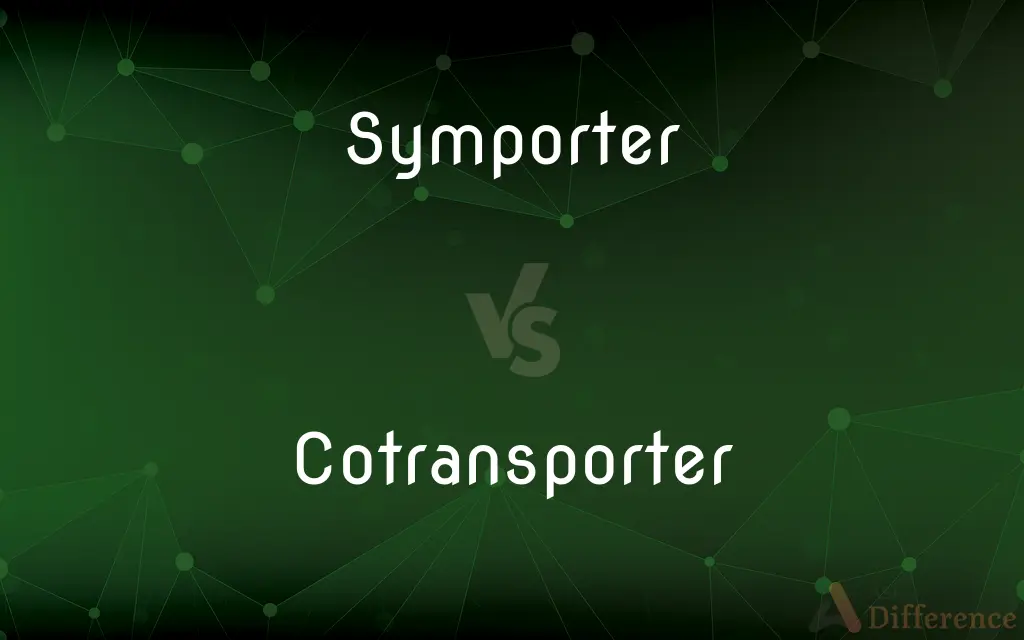Symporter vs. Cotransporter — What's the Difference?

Difference Between Symporter and Cotransporter
ADVERTISEMENT
Compare with Definitions
Symporter
A symporter is an integral membrane protein that is involved in the transport of two different molecules across the cell membrane in the same direction. The symporter works in the plasma membrane and molecules are transported across the cell membrane at the same time, and is, therefore, a type of cotransporter.
Cotransporter
Cotransporters are a subcategory of membrane transport proteins (transporters) that couple the favorable movement of one molecule with its concentration gradient and unfavorable movement of another molecule against its concentration gradient. They enable cotransport (secondary active transport) and include antiporters and symporters.
Symporter
(biochemistry) An integral membrane protein involved in the movement of different molecules or ions in the same direction across a phospholipid membrane.
Cotransporter
(biochemistry) An integral membrane protein that actively transports molecules by using the concentration gradient of one molecule or ion concentration to force the other molecule or ion against its gradient.
Share Your Discovery

Previous Comparison
Transubstantiation vs. Consubstantiation
Next Comparison
Septical vs. Skeptical














































